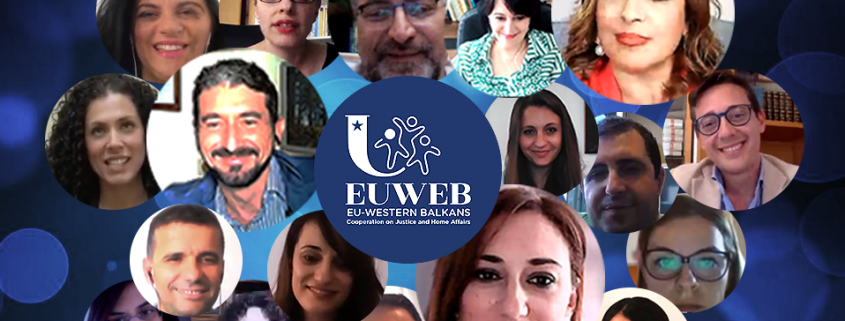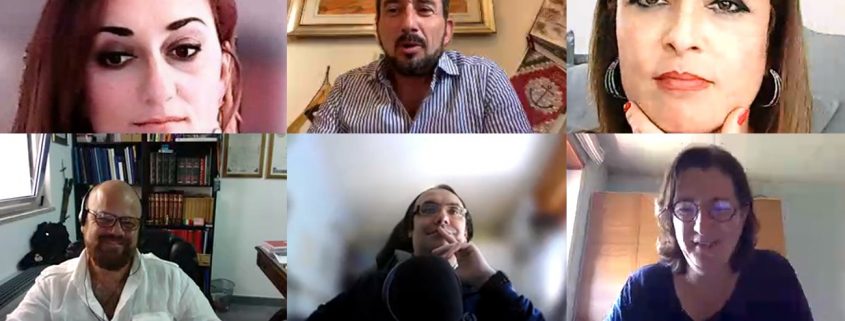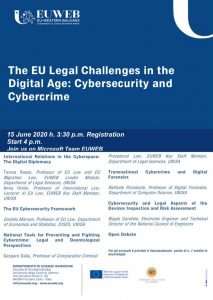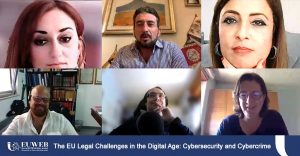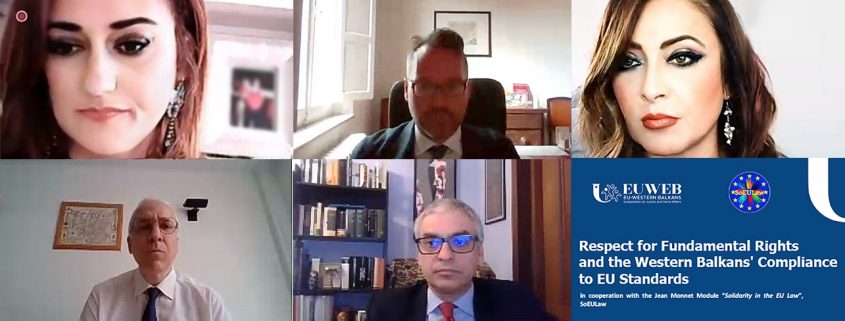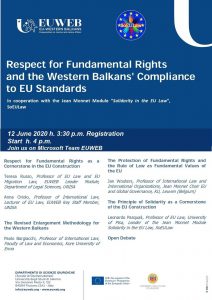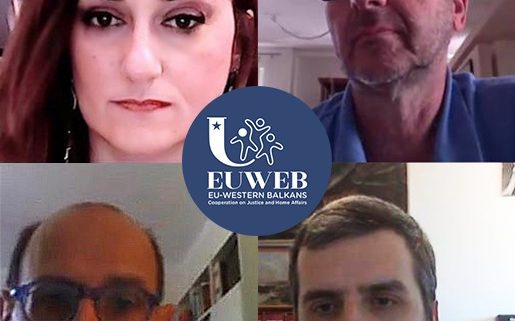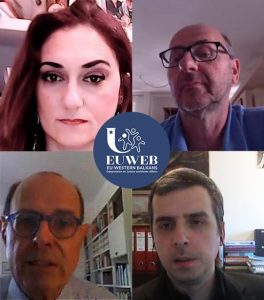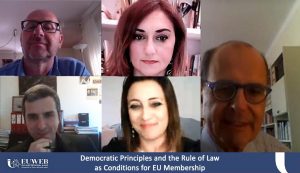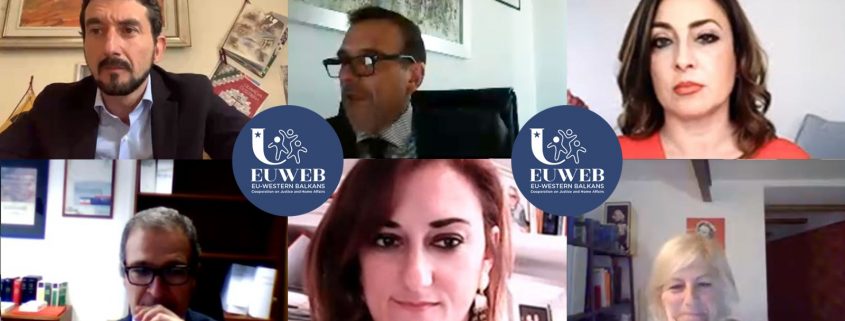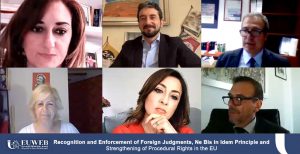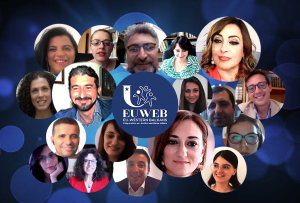
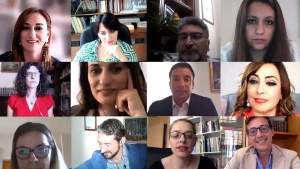
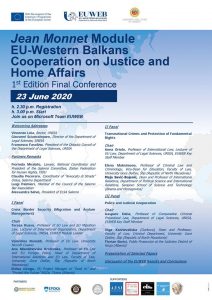
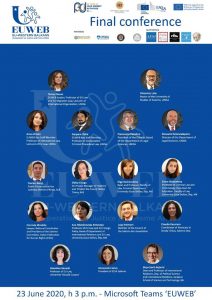
After all the planned training activities, the first edition of the Jean Monnet EU-Western Balkans Cooperation on Justice and Home Affairs Form, EUWEB is coming to an end.
The final Conference will take place on June 23, 2020 at 3 pm on the Microsoft Teams platform with the participation of distinguished speakers and experts in the field.
After the welcoming addressed of Vincenzo Loia, Rector, UNISA, Giovanni Sciancalepore, Director of the Department of Legal Sciences, UNISA and Francesco Fasolino, President of the Didactic Council of the Department of Legal Sciences, UNISA, it will be the turn of the supporters of the EUWEB Module thanks to the participation of Fiorinda Mirabile, Lawyer, National Coordinator and President of the Salerno Committee, Italian Human Rights Federation, FIDU; Claudia Pecoraro, Salerno Coordinator of the Onlus “Avvocati di Strada” ; Luigi Palmieri, Member of the Council of the Salerno Bar Association and Alessandra Salvo, President of ELSA Salerno.
Then the Conference will be divided into three Panels concerning the main thematic areas of the EUWEB Module and specifically: The Panel “Cross Border Security (Migration and Asylum Management)”which will be chaired by Teresa Russo, Professor of European Union Law, Department of Legal Sciences , UNISA, EUWEB Leader; II Panel “Transnational Crimes and Protection of Fundamental Rights”, which will be chaired by Anna Oriolo, Professor of International Law, Department of Legal Sciences, UNISA, EUWEB Key Staff Member; III Panel “Police and Judicial Cooperation”, which will be chaired by Gaspare Dalia, Professor of Comparative Criminal Procedure Law, Department of Legal Sciences, UNISA, EUWEB Key Staff Member.
The discussion will be conducted through the submission of questions to the speakers who will ensure a more dynamic development of all three panels that will see the participation for the I Panel I of Valentina Ranaldi, Professor of EU law, Niccolò Cusano University; Ana Nikodinovska Krstevska, Professor of EU Law and EU Foreign Policy, Director of the Department of International Relations and European Union Law, Faculty of Law, Goce Delčev University, Štip (Republic of North Macedonia) and Eldisa Cirogu, EU Project Manager of the NGOs “Soek In” and “Protect the Future”, Tirana (Albania); for the II Panel of Elena Maksimova, Assistant Professor, Vice-Dean of the Faculty of Law, Goce Delčev University, Štip (Republic of Northern Macedonia) and Maja Savić-Bojanić, Dean, Department of Political Sciences and International Relations, Professor of International Relations at the Sarajevo School of Science and Technology (Bosnia and Herzegovina); for the III Panel of Olga Koshevaliska (Gurkova), Dean and Associate Professor, Faculty of Law, Department of Criminal Law, Goce Delčev University, Štip (Republic of North Macedonia) and Florian Boriçi, Public Prosecutor at the Judicial District of Kruja ( Albania)

